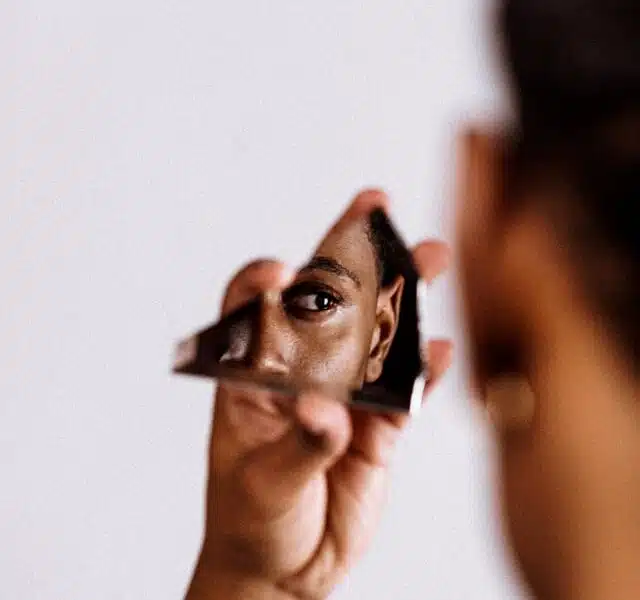Do you Have a Toxic Relationship? How To Know and 5 Ways To Leave

Time to find out if you are in a toxic relationship
Relationships (Updated 2024) 31st Jan, 2022
What is a toxic relationship?
A toxic relationship is a type of relationship that will leave either one or both of the couple feeling emotionally drained. Exchanges between the two of you more often leave one of you rubbed the wrong way, leading to constant bickering, argueing and oneup-manship.

“It became more about winning. Things used to feel good between us, we would laugh together but now when he laughs, it’s at me.”
A Toxic relationship can be defined by one or both partners feeling constantly wronged or drained as a result of something the other has done and said.
Toxic relationships are ones where you feel a lack of support from you partner, it is different from a healthy relationship as you feel misunderstood, to ones where you are attacked or demeaned in some way.
Maybe you would rather try a relationship compatibilty test?
7 signs of a toxic relationship
The best judge of the state of a relationship is you. The basic litmus test is whether your physical and mental well-being is in jeopardy because of your partner. If this is the case, it’s probably safe to say you are in a toxic relationship.
But having the perspective to know is sometimes hard. You are so close to the toxic relationship, it’s impossible to see the bigger picture.
Just because you see some of them, some of the time doesn’t automatically mean your relationship is toxic. But enough together and often enough are a very good indicator.
Here are some tell tale signs that you are able to easily identify:
- The give and take balance is not equal enough
You must both feel valued in a relationship and its important to give and recieve. It is common and normal for one to give more than the other, but if this disbalance grows too strong, this can lead to the entire relationship falling apart.
Be mindful of the balance. If you find yourself suddenly keeping track of who does what, this might lead you to start unhealthy thought patterns about everything being an exchange. “I do this, so you must do that.”
You want the relationship to be and feel organic, so be mindful of who does what not for bargaining chips but instead to call out the general behaviour.
If you feel like you are always the one doing things for your partner and it’s once in a blue moon if ever that something is done for you, then this is a sign that things are far from equal. - Respect is a two way street
Loving someone is all good and well, but respect is of equal importance. When you respect someone you care enough about them to take what they say and do seriously.
This doesn’t mean you automatically agree. Instead you will give them the respect to explain why you don’t.
Respect works both ways, and it is common for couples to test one another. If your partner is obviously just seeing how you would react to a certain thing you say or do, this is a lack of respect and should be called out for what it is.
The difficulty is when this is harder to notice. You will know if you are being treated with respect if you feel like you have value in the relatioship, rather than are just a piece of furniture. - Feelings of low self-esteem
Self-esteem and respect go hand in hand. If you feel like you are not worth anything then chances are part of it is because you are getting little to no respect from your partner.
But a lack of respect is not the only cause. Your partner might be taking things a step further and constantly putting you down, and belittling you.
Over time and coming from a place that is supposed to make us feel good can do terrible things for the self-esteem.
Though self-esteem issues can also come from oneself. We shouldn’t have to look to our partner to improve our self-esteem and if you are used to feeling no worth then it is unfair to lay the blame at the feet of your partner.
Be mindful and try to track your self-esteem before and after talking or engaging with your parnter. If you are often coming away feeling worse than you did going on, chances are you are in a toxic relationship. - Post interaction depression, anger and tiredness
There is more than self-esteem that can suffer. Your emotional state is also at risk.
It is normal to argue but if you come away feeling angry, dejected, depressed or just plain tired with nothing to do with those emotions except vent or bottle them up inside then you are not in a good cycle.
You might not feel all of these, or feel these in the same order, the key is that your emotional state is much worse off than it otherwise would have been.
This can get messy when you are seeking the stiumlation or attention from your partner and this (negative emotional state) is the constant result.
When you begint to associate seeking attention from your partner with these negative emotions, it becomes normalised and you would feel strange if you came away feeling better off. - Unhealthy levels of competition
The result of which is the worst being brought out in both of you. This may include your need to be extra-bitchy (and not just in a usual queeny style).
It can also mean it’s about winning rather than trying to resolve anything. If you see your partner or they see you as the one to overcome then you are in a toxic relationship.
If you notice that during arguments, you realise that you are not trying to deal with a core issue but instead have got into a scoring match this is an inidcator of competition.
But this is not only related to arguments. If you are just out and speaking to friends and your partner is trying to show they have greater knowledge or, show how they are superior to you in some way this is another sign. - Being constantly on edge
This may also include feeling you need to make your partner happy all the time. Generally speaking it is about feeling that you are always a moment away from having to react to what you partner is about to do or say.
It is the feeling of walking on constant egg shells. This can be draining on you, and is a sign of possible toxic love. - Everything is your fault
Every relationship has good and bad moments, but that doesn’t mean that everything that goes wrong has to be an egg in your face.
This can range from the big things to the literally incosequential. If you find that no matter what goes wrong in your partners life it can be attributed to you.
Sometimes with the most tenenous of links then this is certainly a sign of a toxic relationship.
Likewise if you find yourself constantly blaming, perhaps because you feel that things have not turned out quite the way you expected them to or whatever the reason is, it is most likely because you or your partner struggle with taking responsbility.
Therefore it makes much more sense to blame, because when you blame someone else the responsbility is gone, but then so is much of the power to take control of your life with it.
If you are still unsure why not try this toxic relationship test?
9 Toxic traits
When looking out for toxic traits its important to remember that it takes two of you to form a relationship. As quick as you might be to judge the other its important to be able to view yourself with the same level of scrutiny.
Though it is totally possible that your partner is the one who is causing the toxicity it could also be because of you or because of the two of you.
There is a defininte link between toxicity and co-dependancy and if you are in a toxic relationship for one reason or another its important to think about why. And in some cases where you are both bringing out the worst in each other.
If you find yourself or your partner showing these sorts of traits more often than not then it is time to give your relationship and yourself a serious evaluation.
Toxic traits include:
- Insecurity
- Jealousy
- Negativity
- Self-centredness
- Selfishness
- Being overly critical
- Being demeaning toward the other person
- A lack of trust
- Abuse and disrespect.
If you are still unsure try our Toxic Relationship test.
Can it be fixed?
Just because you are in a toxic relationship doesn’t autimatically mean that you are doomed.
But… change comes from within. Even if one of you wants to change for the better, it’s simply not enough.
“I was ready to make a break, a clean start, to work on what needed to be. But… they weren’t and the harder I tried the more frustrated I became when they wouldn’t do the same.”
Without commitment to change from both of you then you are doomed to eventually get into the same toxic patterns as before.
if you do want to give things a try then, the following are a good place to start:
Can you take Responsibility?
The first stage like most is accepting their is a problem. Of course without doing so why bother to change anything?
Sometimes you might need to get a little distance to be able to see you and them with a fresh set of eyes. Be able to see the patterns and behaviours that you would usually just rationalise away.
Having some self-awareness and being able to say, this isn’t great and it’s time to make a change is the crucial first step, but again it must come from both of you.
Are you willing to invest?
Fixing something is work and there is no substitue for that work. If you are willing to put in the time and the effort to truly make things better then you have a great chance.
Even with the best of intentions and realisations, without putting one foot in front of the other you are never going to change anything.
Can you stop blaming?
It’s not always your fault. But when it is it’s time to swallow it up and accept it.
“I wouldn’t have been in this situation if it wasn’t for you. I can’t believe that you did this to me!”
When you blame you are trying to protect yourself from the burden of responsibility. You are deffering the life lesson that you would otherwise have recieved and hopefully grown from.
If you are both willing to stop blaming eachother and instead take a breath and really understand why you are saying what you are saying then you have a fair chance of turning things around.
You can always try some of these techniques.
Are you willing to ask for help?
Sometimes, even with the best of intentions and effort you might need someone else to help guide you through the hardest of times.
By being able to look your toxic relationship and yourself in the mirror enough to say, “yes, we need extra help” takes bravery and should not be met with shame. There is nothing wrong with getting outside help and a counsellor is trained to offer unbiased support and neutral perspective.
They can get you to look at things in ways you never thought of yourself, help resolve issues, identify toxic patterns and suggest healthier patterns to make things work again.
Saving a toxic relationship
So know what we have to be willling to do to turn things around. But what are the actual steps to get things back on track.
Focus on the now
It can be tempting to dredge up old scenarios and use them as ammunition against your partner but do your best to not. Though being able to look at the past is important what is more valuable is to look for general patterns more than specific instances.
Try to use these general patterns as a warning and something to work away from. By focusing on the speicifcs of now you are able to find opprtunies to create healthy and positive scenarios instead. When you do this enough they will add up to the new general patterns. The ones you want to keep and maintain.
Far better than if you focused on the bad situations in the past, even if with good intentions it is more likely to lead back to the same old arguments and toxic beahiours.
Try Empathy
The world as much as we might wish it did does not revolve around ourselves. As humans we naturally avoid pain and move towards pleasure but then doesn´t our partner?
Are they really being bad to us or are they simply reacting to something else that we have no idea about?
Did they have a terrible day at work? Has something happened to their family or friend?
Rather than being quick to blame and find fault in our partern instead take the time and care to ask.
“I didn`t mean to shout. But I didn´t mean for my car to break down, to be put on a warning for being late to the office, or for the mortgage rate to go up. Then he started shouting at me and I shouted back, it was better that then tell him we might lose the house.”
Ask yourself, if you had something that sat in you, some secret you wouldn´t like to share, how would you want your partner to ask about it?
This doesn´t mean we make excuses for everything our partner does or say, it simply means we have the empathy to find out what is really going on.
Try to communicate responsibly
When healing you don’t just have to find time to make things better and talk, you have to do it and take full accountability for what you say and do.
When telling your partner exactly how you feel, do so with the intent to own how you feel and not put it in their face. Rather than saying “you” make me feel a certain way instead frame it in “I” feel a certain way when you do this.
By changing the process into one that you have a part in rather than simply being a victim where things just happen at you, it frames the conversation in a way where you can both make real and meaningful decions that might make things better.
It’s ok to get some space and its ok to take time
Change starts at home. There is no way to make your partner better, the only person that you can heal is yourself. If you are lucky enough that you are both able to support eachothers positive change that is fabulous but it is unreasonable to expect that both of your journeys will necceasarily mirror each other so perfectly.
You might take more time than them and visa-versa. Likewise you might have more issues holding you back than them, regardless the key is to be patient and let the positive changes happen as they can.
When looking at yourself, doing a personal diagnostic might mean you need some space to really think about why you act the way you do and think the way you think. With the time away, it also will mean you can see everything that is going on with fresher eyes.
Be prepared to be in this for the long haul, cherish the increased positivity it happens. Reward both of yourself for trying and making a difference and remember that changing yourself is hard. But if you think its worth it then you have every chance to make things better.
Narcissists and Sociopaths
Narcissism is self absorbed behaviour of an extreme nature. Narcissists have little to no regard for other people’s feelings or needs. A lot of us may, on occasion, display narcissistic behaviour, but a narcissist will only show this behaviour regardless of the setting or the people with whom they are in attendance.
The word for Narcissist came from the Greek mythological figure Narcissis who died from thirst as he looked longingly into his reflection in the water, the water he refused to disturb for it would break his reflection.
If someone in your life displays characteristic like a constant need to be loved, couldn’t give a toss how others feel and finds it difficult to accept criticism to match their unreasonable sense of entitlement, they very well may be living with NPD. A definitive diagnosis, of course, should be done by a professional.
In certain ways a much more destructive disorder to live with. People living with ASPD or Sociopaths are generally liars, law breakers, and in addition to their impulsive actions, have little to no regard for the safety of those around them or indeed themselves.
Toxic People
Toxic people can appear in almost all facets of your life, from home to work to social situations to your partner and even your family.
It is important to be able to identify these people and to get them out of your life before they start adversely affecting your physical and mental health. Toxic relationships can happen anywhere.
Work Colleagues
More than simply not liking someone, or they smell particularly bad, if you think one or more people you work with are toxic people, to avoid toxic relationships developing be proactive.
Ask to be moved to another desk by suggesting something is wrong with your work space e.g. you’re getting a draft or the like.
If the person or people still pursue you, take the necessary steps to elevate the complaint to a higher level. This may have to happen several times before they get the hint and the problem is solved.
Family and Your Friendship Circle
These toxic relationships are the most difficult to solve as these groups of people are not easily removed from your life.
Distancing yourself from friends is perhaps easier though than from a family member. In the case of the latter, it may be pertinent to suggest professional help.
You can generally guarantee however that the toxic people in these groups are bound to have several toxic relationships in addition to the one they have with you.
Perhaps share your concerns with other friends or family members for support and guidance.
Toxic Partners:
Toxic relationships could not come any more difficult than when it is with someone you love. This scenario is multi-level and extremely draining, emotionally and physically.
The realisation that the person you fell in love with is not healthy for you may make you doubt your own abilities to choose, whether it was something you have done, and the constant question of why would they do this to you? First and foremost, you must understand and truly believe that it is not your fault.
Exiting such toxic relationships however, though incredibly important, can bring up some rather large hurdles that seem impossible to clear. You may choose to try and fix your relationship prior to taking any other drastic steps. If that doesn’t work though, please keep reading for some helpful hints on how to exit toxic relationships.
FAQ
Why do I like toxic relationships?
Constantly being frustrated and sometimes being rewarded with intense affection can be very addicting.
This constant push and pull makes you desire your partner more and more. When you throw sex into the mix as well, swinging from feeling of euphoria to the utter pits of despair means that you feel both all the stronger.
These intense emotions are something that are brains actually seek and look out for.
Why do people stay in toxic relationships?
People stay in toxic relationships because it’s all the know or it’s all they think they deserve. Also we are creatures of habit and the constant inconsistency becomes what we expect.
We also might have seen such behaviour from our parental figures and without consciously knowing it are looking to recreate it.
Also when our insecuirities are played upon, the toxic relationship can actually be what we look to, to temporarily fill the gaps
Finally, it’s hard to leave a toxic relationship. We become so invested that as far as we are concerned nothing else exists and if it does, it’s the unknown.
How to avoid toxic relationship?
To avoid toxic relationships we must first understand whether or not that is what we are looking for. Go through your old history and see if their is a pattern of toxicity, if not, good, if so then it’s time to take a look under the hood and think about what might be leading you to seek this out.
Once you begin dating it’s important that you showcase exactly who you are and what you are looking for, avoid trying to be a chameleon because this is only skin deep and it will also appeal to other chameleons who are looking for this type of behaviour because they know how to manipulate you into becoming exactly what they want.
Simplest of all, if you see a red flag – stop. Know that before you jump headfirst into another relationship you have the opportunity to screen for the types of issues that will manifest sooner or later as toxic.
How To Leave a Toxic Relationship?
When you believe you have exhausted all other options, and the only thing left to do is to leave, here is some guidelines to ensure the least amount of angst ending toxic relationships of any kind:
- Therapeutic domestic violence advocacy: These professionals are there to assist you to make your exit in the safest possible way. They also have resources to assist you with the transition.
- Tell a family member or extremely close friend: At this time, having a support network will be vitally important. This support may come in a variety of ways including emotional and practical e.g. a place to stay short term.
- Breaking up does not need to be a solo event: Take a friend for support. It may also stop any unpleasant and perhaps violent reactions from occurring.
- Changing your contact details: Changing your mobile phone number and email address is a proactive step to ensuring that unwanted contact can not be made. If this is impossible e.g. for work reasons, be sure to block your partner’s number. Be sure to also change your social media and delete/block your partner.
- Self care can never be overrated in this situation: Take some time to care for you.
The Bottom Line
It’s important to realise that people living with mental illnesses like bipolar disorder or depression are highly susceptible to toxic relationships due to their sensitivity to emotional negativity. If you, or anyone you know may be living with any of these conditions, it is important to research the symptoms and get professional assistance.
















